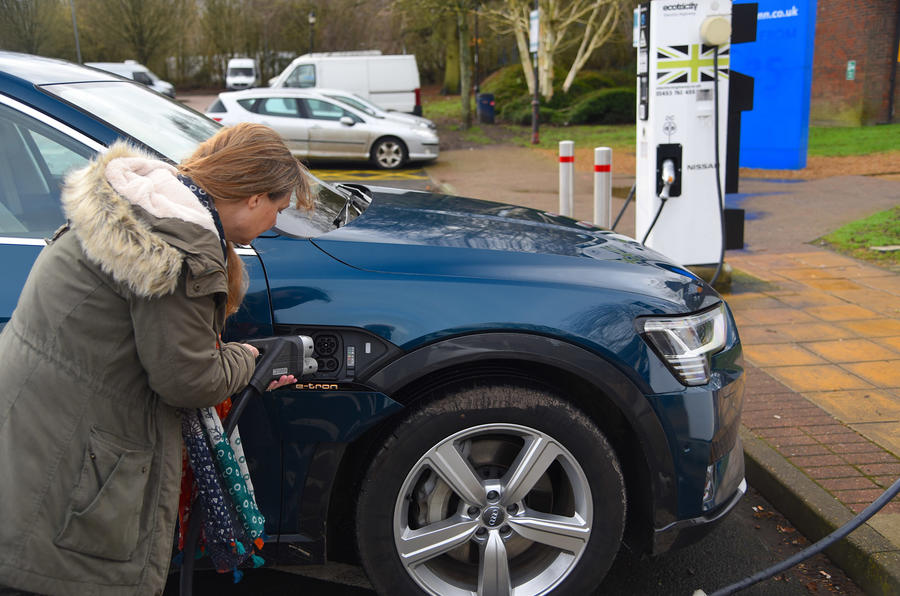The upcoming 2030 ban on new petrol and diesel cars will transform UK motoring on a scale never seen before. This story is part of a wider analysis of the challenges faced by consumers, government and the automotive industry, what needs to happen, and how such drastic changes can be achieved over the next decade.
Read the rest of this series here: Countdown to year zero - what needs to happen by 2030?
At the moment, charge costs vary hugely depending on where and when you’re charging, as well as how quickly you’re pushing the juice in.
For those doing it at home (and according to the government-backed Go Ultra Low electric vehicle campaign, around 90% of EV owners do this), it should cost less than £5 to fully charge something like a Nissan Leaf.
Don’t forget, though, that you’ll need a wallbox to be installed. There are plenty of companies offering this, and some car manufacturers even offer it for free. Government subsidies help as well, so you can expect to pay around £400 for a 7kW home charging station.
give a definitive price. Motorway chargers tend to be more expensive as they are quicker (Ionity now charges users 69p per kWh), but away from the trunk routes, slower charges could be as cheap as 20p per kWh. Meanwhile, BP Pulse, for example, offers a £7.85 monthly subscription service that gives you access to around 80% of its network.
And, of course, we shouldn’t forget what the car manufacturers themselves offer. Every new Audi E-tron comes with 1000 miles’ worth of free charging and access to nearly 20 different charging firms, while Tesla continues to dominate with its network of Superchargers. Owners of post-2017 Teslas currently pay 26p per kWh.
Brazier, though, makes an interesting point about where we might be in the future. At the moment, your electricity bill is made up of approximately 50% on the energy itself, 25% on the network component (wires and the grid) and 25% on green charges and tariffs.
But where there’s a glimmer of hope is regarding the energy element, because renewables are by their very nature free. No one pays for the wind to blow or the sun to shine. Obviously there will be costs associated with getting a turbine in place, but once that capital is paid off, the charge should reduce dramatically.
One caveat with this is that network costs will need to rise because of all the upgrades we’ve mentioned above. But at least there’s a glimmer of hope…
READ MORE
Countdown to year zero: what needs to happen by 2030
Official: Government to ban new petrol and diesel car sales in 2030
The UK's 2030 petrol and diesel ban: Autocar’s response





Add your comment